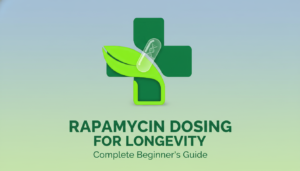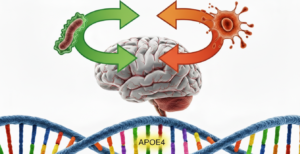Rapamycin in 2025: Surprising New Findings on Aging, Immunity, and Women’s Health

Rapamycin has long been studied as a potential rapamycin anti aging therapy—something explored in detail in resources like this longevity overview. But in 2025, the spotlight is shifting toward new and unexpected research directions—far beyond its classic role in slowing aging. Here are some of the most intriguing and lesser-known findings emerging this year, especially as scientists explore rapamycin longevity benefits more deeply.
Rapamycin and Alzheimer’s: The First Human Data
A recent phase I clinical trial tested rapamycin in people with mild cognitive impairment, a precursor to Alzheimer’s disease. Results showed that:
- Rapamycin was not detected in the cerebrospinal fluid (CSF), suggesting it may not easily cross into the brain—an important point also highlighted in rapamycin cognitive studies.
However, Alzheimer-related biomarkers and inflammation markers showed measurable increases.
This is the first human evidence of rapamycin’s indirect effects on the brain, opening new questions about rapamycin cognitive function, neurodegeneration, and its potential role in rapamycin Alzheimer’s clinical trial research.
Immune Rejuvenation: Boosting Vaccine Response
An analog of rapamycin was tested in adults over 65 years old prior to flu vaccination. Findings included:
- 20% stronger immune response to the vaccine.
- Positive changes in T cells, a critical component of immune defense.
Strengthening immune function in older adults is one of the biggest challenges in healthy aging—and rapamycin analogs may help, especially when exploring rapamycin on elderly immune system support. Similar immune findings are seen in ME/CFS rapamycin trials and broader rapamycin longevity research.
Compatible With Exercise
One concern with rapamycin has been whether it blocks the muscle-building benefits of resistance training. New mouse studies suggest:
- Rapamycin does not impair muscle strength or endurance gains from exercise—consistent with observations in the muscle strength & endurance study.
- Dosing strategies appear to influence metabolic effects without negating training benefits.
Rather than being at odds, rapamycin and exercise may actually complement each other in promoting healthy longevity—an important insight for those combining fitness routines with rapamycin anti aging interventions, as further explored in future longevity projections.
A Potential Role in Delaying Menopause
A pilot study at Columbia University is exploring whether rapamycin might influence ovarian function in women aged 35–45. Early observations hint at:
- Improved ovarian activity.
- Positive effects on mood, sleep, and hormonal balance.
If validated, this would expand rapamycin’s relevance beyond longevity—potentially reshaping women’s health and reproductive aging. This area is gaining attention under the emerging topic of rapamycin women’s health 2025, supported by studies like rapamycin’s potential to delay menopause and fertility-related research.
In Summary
- Alzheimer’s studies are providing the first human insights into rapamycin’s effects on the brain and rapamycin cognitive function, also examined in neuron-protection research.
- Immune rejuvenation could transform how we protect older adults from infections through rapamycin on elderly immune system improvements, similar to findings in weekly ME/CFS rapamycin trials.
- Exercise compatibility reassures those aiming for both longevity and fitness, especially regarding rapamycin and exercise, echoed in healthy aging research.
- Women’s health applications introduce an entirely new perspective on the drug’s potential, elevating interest in rapamycin women’s health 2025, supported by longevity expansion studies
“Rapamycin in 2025 is revealing new benefits—from Alzheimer’s research to immune rejuvenation and women’s health. Discover the latest studies and what they mean for healthy aging.”




